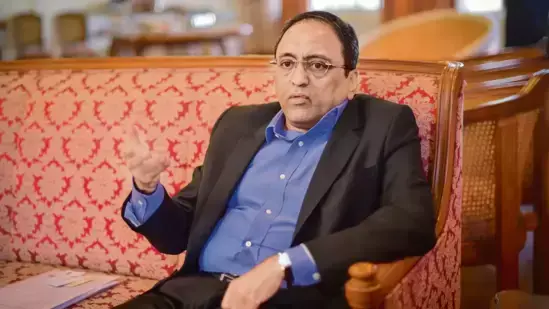
If you ask an IT employee to come to office, he says ‘bye’: L&T Chairman
The topic of work-life balance has been a pressing concern for many professionals, especially in the IT sector. With the rise of remote work and flexible work arrangements, employees are increasingly seeking more autonomy and flexibility in their work schedules. This shift has been led by the advancement of technology and the changing needs of employees. However, not everyone is convinced that this shift is positive. In a recent remark, L&T Chairman SN Subrahmanyan sparked a debate by highlighting the challenges faced by companies in retaining IT talent.
Subrahmanyan, in an interview with a leading news publication, was critical of the 90-hour workweek culture that is prevalent in many IT companies. He emphasized the need for a better work-life balance and called for a more humane approach towards employees. However, his remarks went beyond just the issue of work hours and touched upon the changing nature of work itself.
Subrahmanyan recalled his early days in the industry, saying, “When I joined L&T in 1983, my boss said, if you’re from Chennai, you go to Delhi and work.” He then contrasted this with the current scenario, stating, “Today, if you ask an IT employee to come to the office and work, he says ‘bye’ (he resigns).” These remarks suggest that Subrahmanyan believes that the demand for flexibility and autonomy in work arrangements has become so intense that employees are willing to quit their jobs if they are not offered.
There are several reasons why Subrahmanyan’s remarks are relevant to the current debate on work-life balance. Firstly, his comments highlight the reality that many employees are seeking more flexibility in their work arrangements. With the advancement of technology, employees are no longer tied to a specific location or schedule. They can work from anywhere, at any time, as long as they have a stable internet connection.
Secondly, Subrahmanyan’s remarks emphasize the need for companies to adapt to this changing landscape. As the Chairman of a leading Indian conglomerate, he is well-positioned to observe the trends in the industry. His comments suggest that companies that fail to adapt to the changing needs of employees will struggle to retain talent.
Thirdly, Subrahmanyan’s remarks raise important questions about the nature of work itself. In today’s digital age, work is no longer confined to a specific location or schedule. Employees are increasingly seeking a better work-life balance, which involves having more control over their work schedules and being able to work from anywhere.
In conclusion, Subrahmanyan’s remarks are a timely reminder of the need for companies to adapt to the changing needs of employees. The shift towards remote work and flexible work arrangements is not going away, and companies that fail to adapt will struggle to retain talent. As the Chairman of a leading Indian conglomerate, Subrahmanyan’s comments carry significant weight, and it is essential for companies to take note of his observations.
Source:






